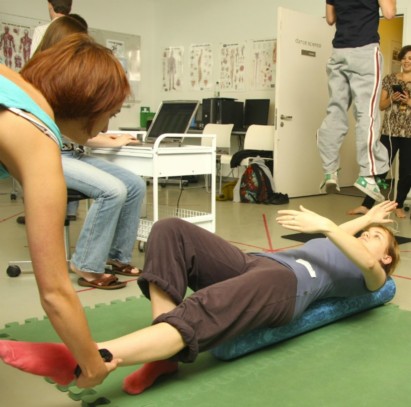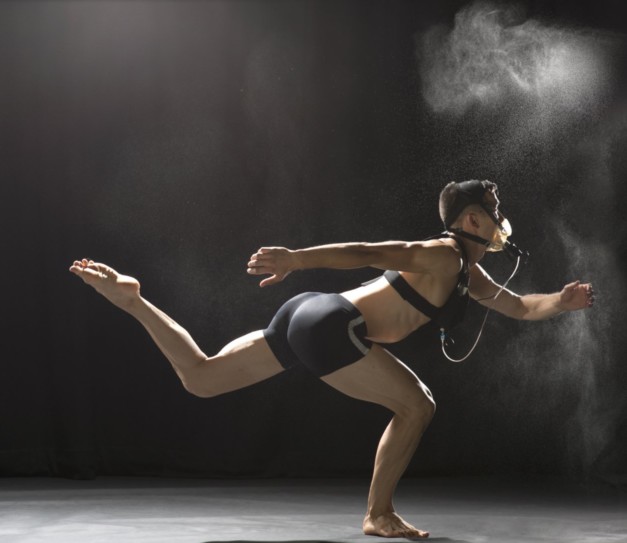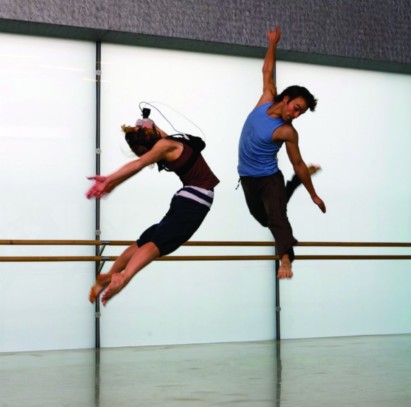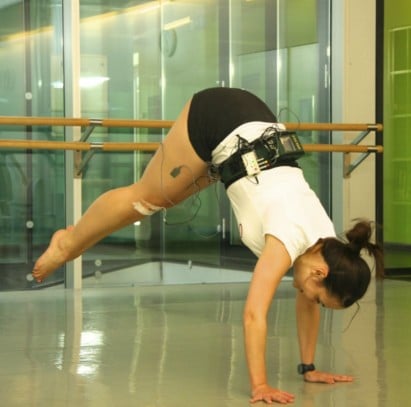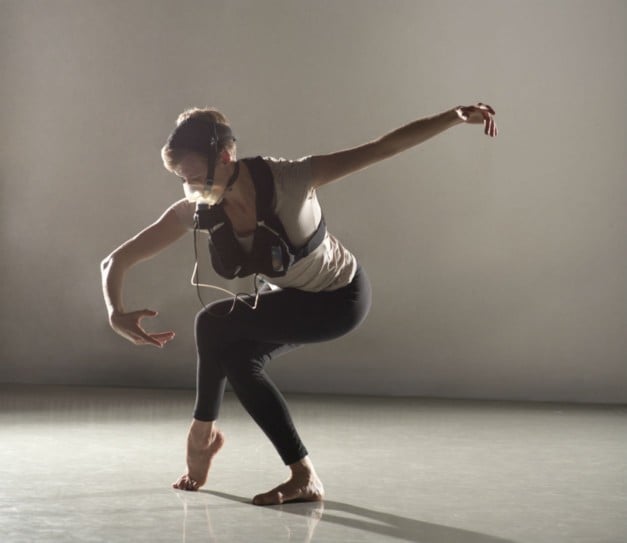Dance Science Gallery
On our dance science programmes you can explore dance practice and performance from theoretical and applied perspectives, through a range of scientific disciplines and in a variety of dance contexts.
The MSc in Dance Science is a one-year (full time) or two-year (part time) research-focused programme, which takes on multidisciplinary perspectives to facilitate the understanding and optimisation of dancers’ experience and performance. Through a breadth of scientific approaches, the programme explores the dancer and dance contexts from recreational to professional settings and develops robust research skills for the study thereof.This programme is for individuals who have some experience with dance – including dancers, choreographers, scientists, teachers, lecturers and health practitioners – and who are motivated to deepen their knowledge of dance science.
The MSc Dance Science is a research-focused taught programme which focuses on understanding and investigating dancers and dance practice across recreational, training and professional settings through scientific approaches. The programme offers the opportunity to develop and apply knowledge in a variety of areas, including enhancement of dance practice and performance, dancers’ wellness, and dance for health.
Msc Dance Science (Level 7)
| Modules | Credits |
| Approaches to Performance Research | 30 |
| Foundations in Performance Science | 30 |
| Performing Research 1 | 15 |
| Performing Research 2 | 15 |
| Applications in Dance Science | 30 |
| Project | 60 |
For more details, take a look at the programme specification or email the Programme Leader, Catherine Haber: c.haber@trinitylaban.ac.uk
The MSc Dance Science consists of approximately 1800 notional learning hours. The five taught modules vary in their contact hours relative to the module aims and awarding credits (for an outline of contact hours per module, refer to the individual module specifications).
Following a blended learning approach, students will learn through a wide variety of flexible learning and teaching methods both in digital and in person learning environments, underpinned by a significant amount of self-directed learning. The learning and teaching strategies include webinars and seminars, digital and practical workshops, group and individual tutorials, peer and tutor led discussions, mini-conference days, studio-and lab-based application, as well as independent and self-directed work. Students will be encouraged to work collaboratively with peers within and external to their programme as part of their learning experience.
To assist learning, students will have access to a range of additional support provided by the dance science laboratory team, student support, audio-visual and digital enhanced learning teams, as well as library support. Individual and/or group tutorial support is offered to students in preparation for assessments. Academic tutor office hours are also available to students.
The programmes assessments are specifically designed with employability in mind. The range of summative and formative assessments are designed to reflect the knowledge and skills required of graduates entering the dance science sector and centre on a critical examination of dance science theory and research as applied to dance practice. Students will be assessed according to their ability to meet the learning outcomes for the module, and against any specific assessment criteria provided.
Assessment tasks include: a multidisciplinary dance science portfolio, developing a project proposal, , group project lab reports and poster presentations based on research conducted within the conservatoire, designing and delivering a Dance Science workshop, and culminates with a written journal article and presentation.
Assessment modes include individual and group assessments in written, oral and practice-based presentations, in digital and/or in person contexts.
The MSc in Dance Science equips graduate for various career pathways. The programme provides a strong foundation for those pursuing careers in higher education, such as lecturers, researchers, or doctoral studies in dance science. Graduates have also gone on to work as consultants for dance companies, training institutions and dance organisations; while others have used the dance science knowledge and skills gained to enhance their practice in the field, as dancers, teachers, rehearsal directors, choreographers, clinical practitioners, fitness instructors, or business owners.
I met life-long mentors, colleagues, and friends and encountered incredible opportunities; above all, I was nurtured as a dance artist, researcher and academic
Dr Shantel Ehrenberg, MSc student 2005/6, Lecturer in Dance, University of Surrey
In the past five years, four graduates have enrolled on the Research Degree Programme at Trinity Laban, one of whom was awarded a fully funded studentship as part of a larger project grant from The Leverhulme Trust, and another has been awarded an ESRC PhD studentship for the University of Bath.
For more information on the successes of Trinity Laban’s MSc Dance Science graduates and what they have to say about the course, visit Alumni Profiles. Also, a reference list of graduate publications, posters and presentations is available.
IELTS Band 6.5 overall with a minimum of 5.5 in all four areas (General English Test) or above (or equivalents).
If you require a Student visa to study in the UK, please be aware of its English language requirements, as they may differ. Secure English Language Tests and levels can be found at gov.uk. In addition, meeting external requirements of UK Visas and Immigration is essential.
Please visit the Dance Applications page for full details of entry requirements and the application process for this programme.
Fees are reviewed annually and may increase by up to 5% each year. The following fees are confirmed.
| Full Time: September 2024 entrants | ||
|---|---|---|
| Year | HOME | INTERNATIONAL |
| 2024/25 | £10,630 | £22,520 |
| Part Time: September 2024 entrants | ||
|---|---|---|
| Year | HOME | INTERNATIONAL |
| Year 1: 2024/25 | £5,930 | £12,540 |
| Year 2: 2025/26 | £6,160 | £13,040 |
| Total Fee: | £12,090 | £25,580 |
| Full time: September 2024 entrants | ||
|---|---|---|
| Year | HOME | INTERNATIONAL |
| Year 1: 2024/25 | £6,110 | £13,770 |
| Year 2: 2025/26 | £6,350 | £14,320 |
| Total Fee: | £12,460 | £28,090 |
| Full Time: September 2023 entrants | ||
|---|---|---|
| Year | HOME | INTERNATIONAL |
| 2023/24 | £10,230 | £21,660 |
| Part Time: September 2023 entrants | ||
|---|---|---|
| Year | HOME | INTERNATIONAL |
| Year 1: 2023/24 | £5,700 | £12,060 |
| Year 2: 2024/25 | £5,930 | £12,540 |
| Total Fee: | £11,630 | £24,600 |
This information can be found on our Costs of Living page.
Read about financial awards and external funding opportunities in the Fees and Finance section.
| UCAS | 801F (full time) / 804P (part time) |
|---|---|
| Location | Laban Building |
| Duration | 1 year (full time) / 2 years (part time) |
| Start Date | September |
On our dance science programmes you can explore dance practice and performance from theoretical and applied perspectives, through a range of scientific disciplines and in a variety of dance contexts.
Seema Chopra / MSc Dance Science
